The Pukaskwa Coastal Trail: a hike that’s breathtaking in more ways than one
In association with Ontario Tourism
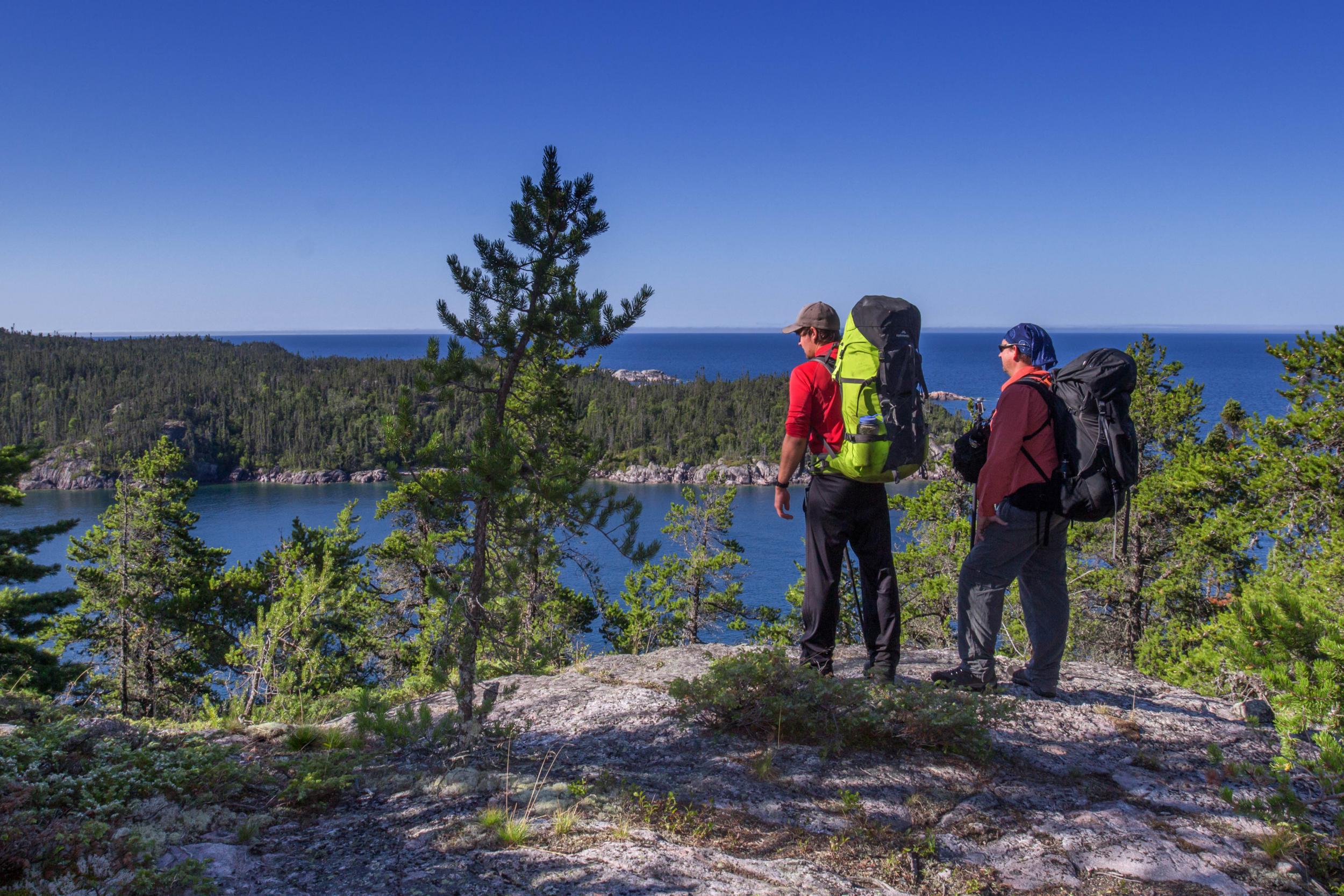
The majestic inland sea of Lake Superior contains a tenth of all the fresh water on the planet. Known as Gitche Gumee by the Ojibwe people, Longfellow's felicitous translation in The Song of Hiawatha is 'Shining Big-Sea-Water'. An epic hike along a section of its northern edge follows the Pukaskwa Coastal Hiking Trail, though technically lakes have shorelines rather than coasts.
When you set off to walk 37.8 miles of a British coastal path, you do not expect to be asked whether you are sure you are tough enough; or if you know what to do if you meet a black bear. Nor are you warned that rescue can be slow to arrive in an emergency. But the Coastal Hiking Trail in Pukaskwa National Park has little in common with a jaunt along a well-marked path maintained by the National Trust.
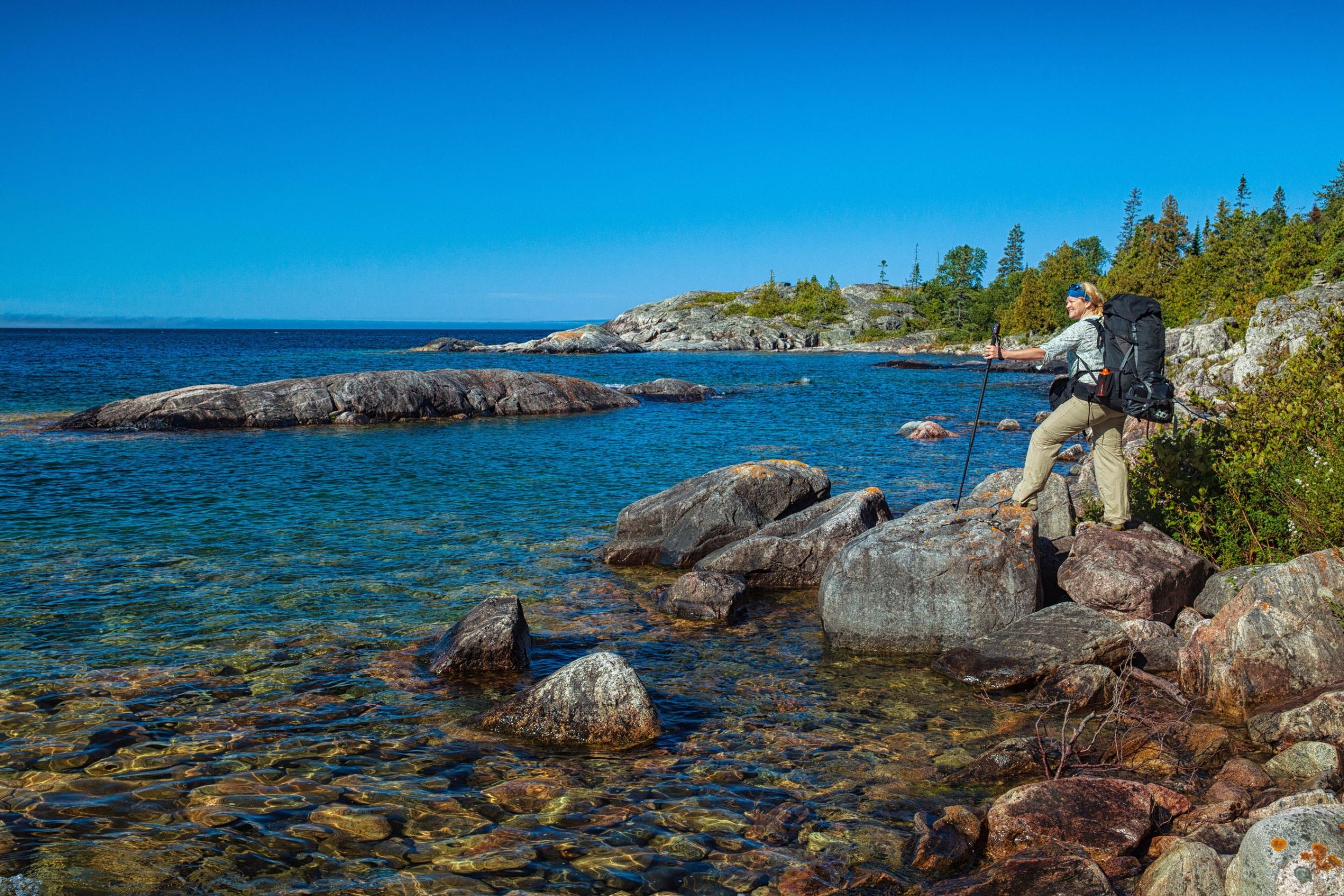
You may be going for a walk and you may be in a park, but this is no walk in the park. Yet the rewards are immense - awe-inspiring waterfalls, bluff-top vistas, campsites in perfect sandy coves, not to mention the chance to boast that you have completed one of the five most challenging hikes in Canada (as voted by Canada's weekly magazine Maclean's).
One of the first challenges is working out how to pronounce the name of this virgin wilderness park. Two favourite Canadian pastimes, ice hockey and lumberjacking, provide a mnemonic: you play hockey with a puck, and you cut down trees with a saw, and the preferred pronunciation is PUCK-a-saw.
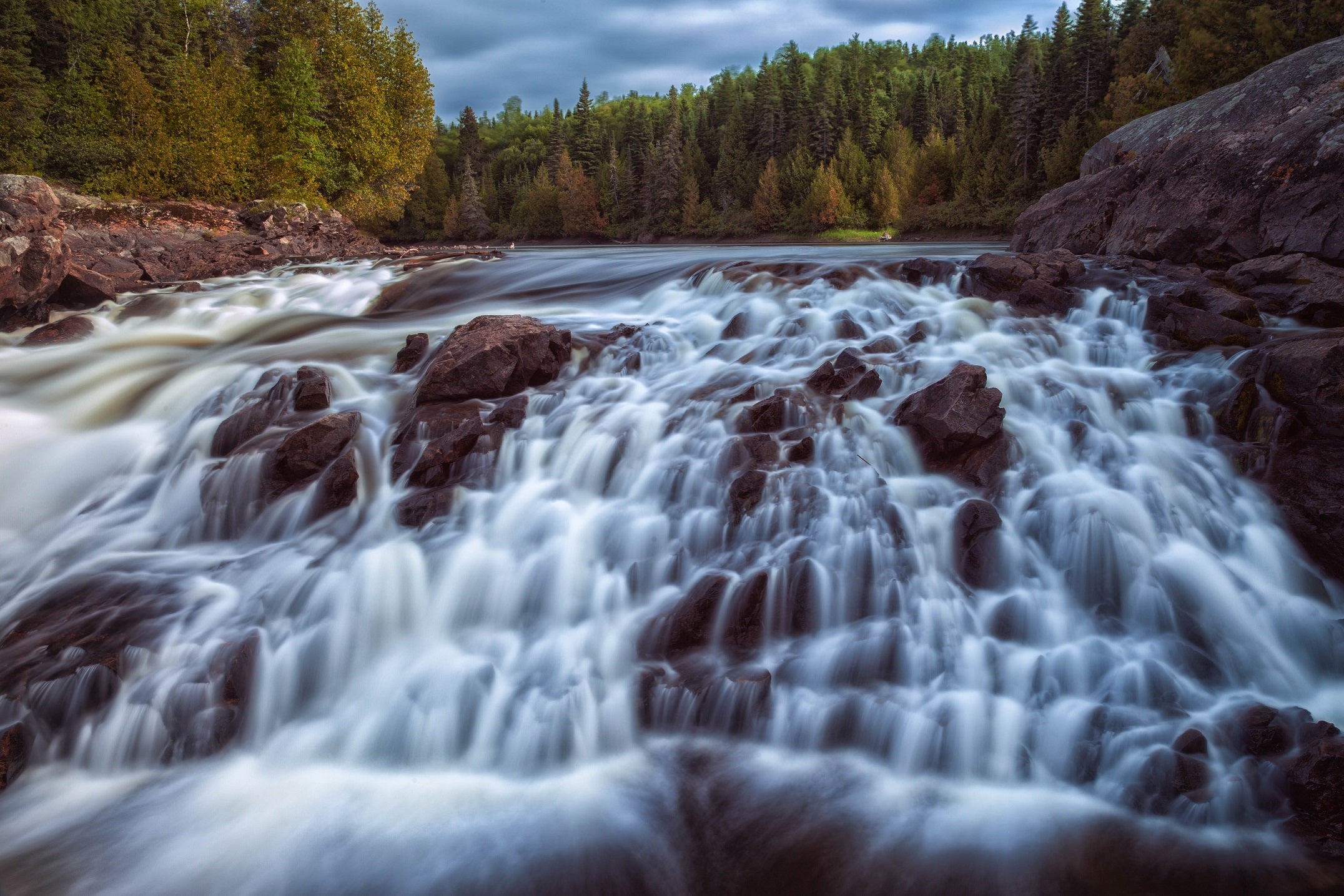
It won't take you long to master the road system because there isn't one. Vehicle access to the coastal trail is from the Visitor Centre and campsite at Hattie Cove on the park's northern edge, roughly halfway between the cities of Sault Ste. Marie and Thunder Bay.
The further south you travel from the park HQ, the tougher the trail conditions become. Most one-way hikers elect to start at the far end by being dropped by water taxi at North Swallow River, and work back towards civilisation. The outer stretch is so seldom travelled that the unmarked trail often seems impossible to discern, until a reassuring rock cairn left by previous hikers comes into view.
All such challenging hikes have their literal and figurative ups and downs, and the constant gains and losses in elevation are wearing. Making your way across boulder gardens or steeply canted granite domes takes concentration and becomes treacherous in wet conditions. Walking poles are considered de rigueur for keeping your balance when carrying a heavy pack.
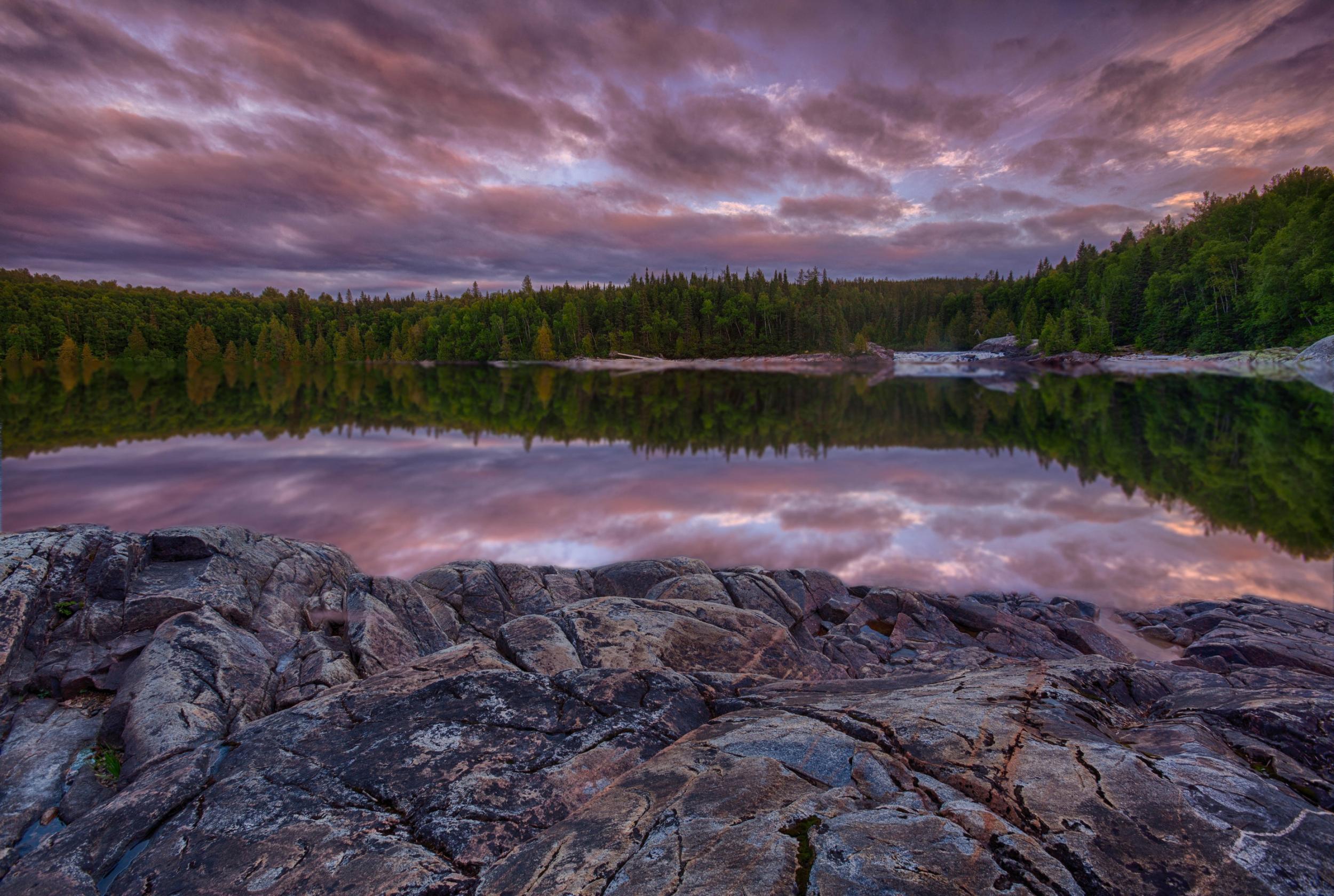
The average speed of progress, as used to estimate timings between campsites in the excellent and detailed Trip Planner produced by the park authorities, is less than one mile an hour. Most people take six or seven days to walk the whole distance, though flexibility should be built into the itinerary because of the unpredictability of the weather. Blue skies can give way in minutes to thick fog or drizzle.
Creeks and streams must be forded or crossed by jumping between stepping stones. Sprawling fallen logs must be clambered over, and steep cliffs climbed. In two places, suspension bridges simplify progress: at Chigamiwinigum Falls, the bridge dramatically sways 75ft above a canyon. The exhilaration of conquering each impediment as it presents itself adds to the thrill, which can be prolonged by braving the iciest and clearest of the Great Lakes for a quick dip.
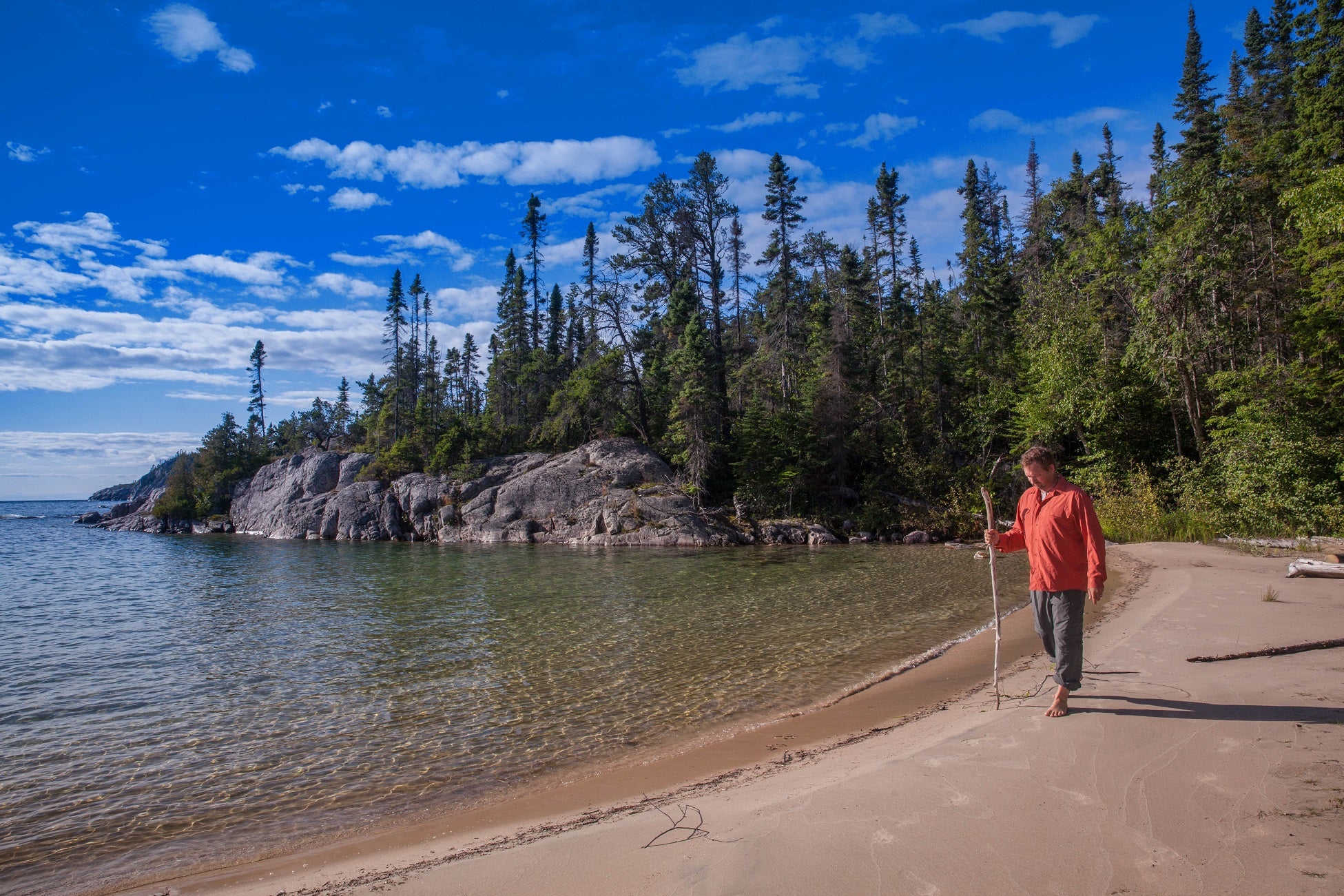
Designated backcountry campsites are more luxurious than in some Ontario parks since they come equipped with a fire pit, privy, bear-proof box for storing food and private swimming pool (i.e. Lake Superior). Hikers often swim in the rivers and streams that cascade into Superior. Despite - or perhaps because of - the low number of hikers, which guarantees a true wilderness experience, the trail can be sociable. Hikers and paddlers camping on adjacent sites often share an evening round a campfire.

If going solo seems daunting, a guided option is available with Naturally Superior Adventures, which specialises in outfitting hikers (as well as paddlers) in Pukaskwa with guides and all the necessary gear and food for camping, purifying water, keeping contact with the outside world and so on. The week-long trip covers 45km of the Coastal Trail and costs $1,295 (£680) including a boat shuttle.
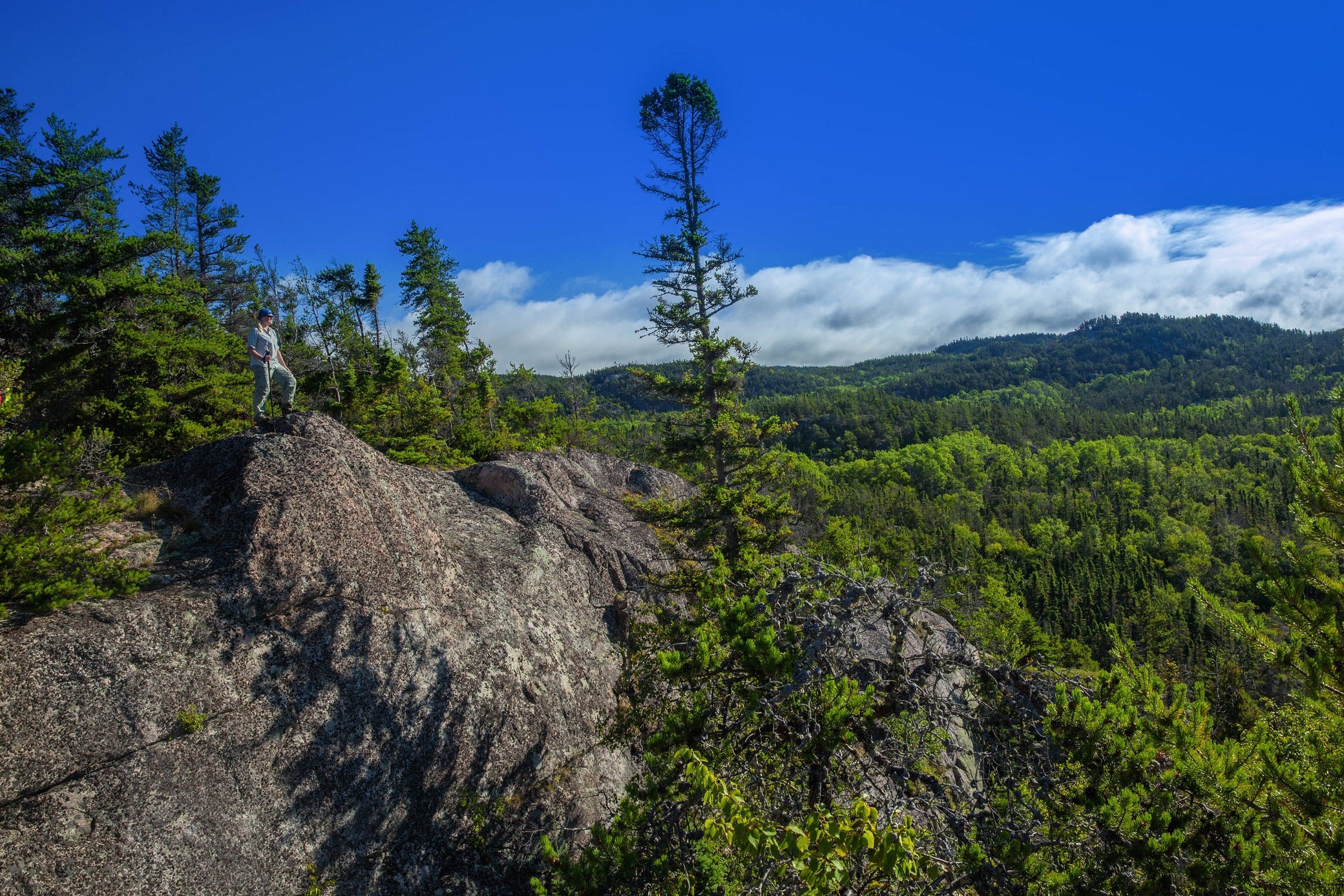
The Pukaskwa Coastal Trail offers unique variety - deep river gorges, pristine boreal forest, sheltered fine-grained sandy beaches, marshes crossed by floating boardwalks, and the chance of spotting moose, beavers and bald eagles. By completing this epic trek, the boundaries of your world will have been pushed out a bit, leaving you with new space to breathe - that is after you've caught your breath from the exertion.
Travel Essentials
The Pukaskwa National Park Visitor Centre in Hattie Cove is 12 hours by road from Toronto, less than four hours from Thunder Bay airport and a little more from the airport in Sault Ste. Marie. McCuaig Marine Services (mccuaigmarine@shaw.ca) provides a water taxi service to the far end for upwards of $500, as well as various other stops on the trail.
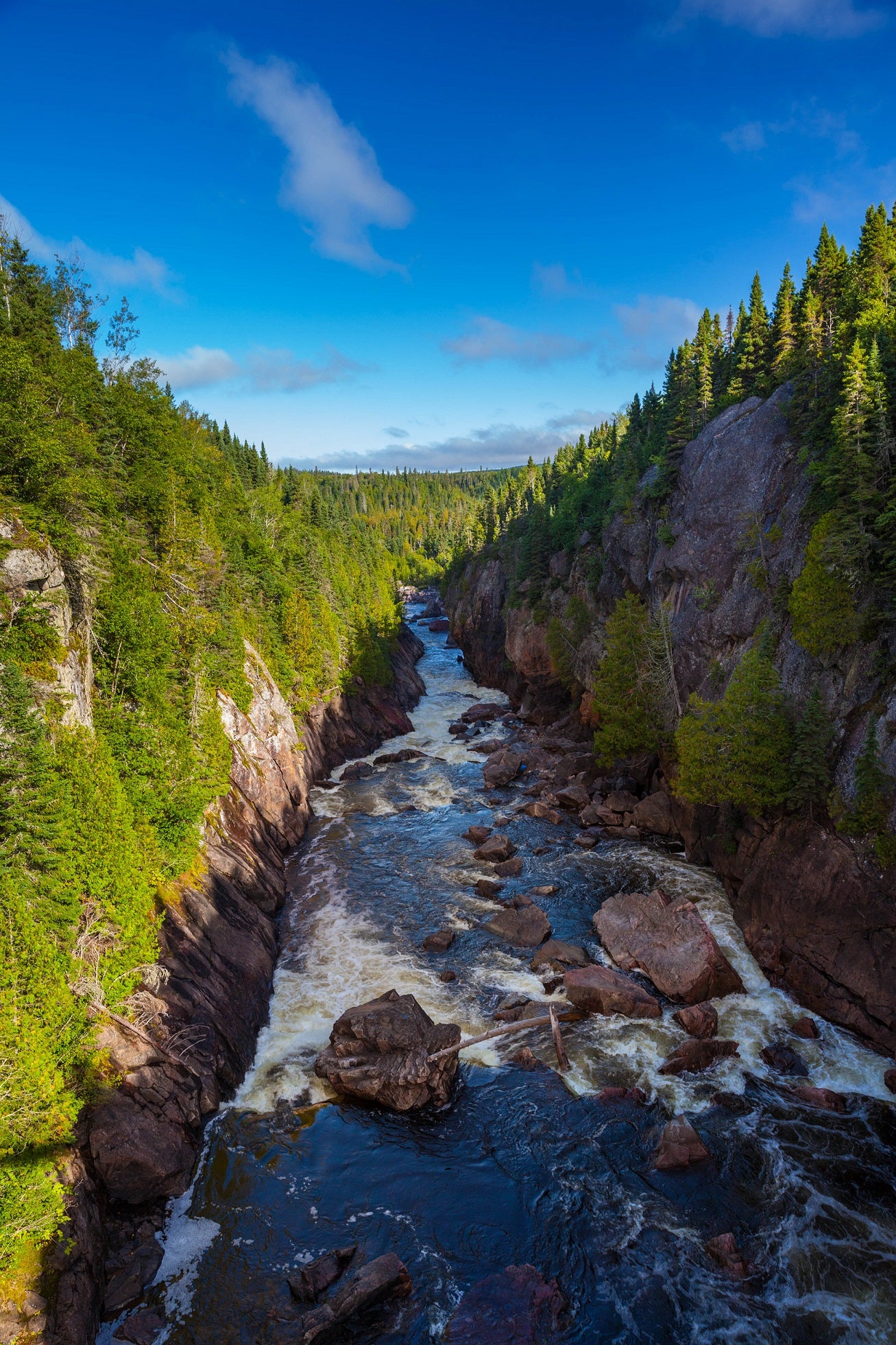
Advance reservations to hike and camp the trail must be made with the park authorities (+1 807 229 0801; ont-pukaskwa@pc.gc.ca).
Park entrance fees are $5.80 per day, and backcountry camping costs $9.80 per site. More information about the guided option with Naturally Superior can be found at naturallysuperior.com
Air Canada (aircanada.com) operates four flights a day from London Heathrow to Toronto and Air Canada rouge connects Edinburgh, Glasgow, Manchester and Dublin with Toronto.
Air Canada rouge will also operate summer flights from Gatwick to Toronto from 19 May 2016. Starting 15 March 2016, British and other visa-exempt foreign nationals who fly to Canada will need an Electronic Travel Authorization (eTA). Application can be made ahead at cic.gc.ca/english/visit/eta.asp and the fee is C$7.
Images: ThePlanetD.com
Join our commenting forum
Join thought-provoking conversations, follow other Independent readers and see their replies
Comments
Bookmark popover
Removed from bookmarks